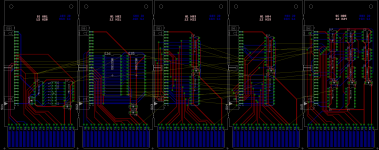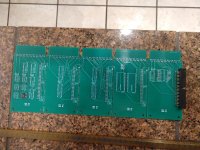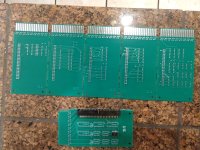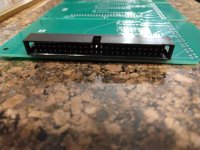vrs42
Veteran Member
Related to a discussion start in the EAE thread, I have ordered prototypes of a proposed MM8I replacement:

The idea is that these cards snap apart and insert into the slots that you would use to cable up a real MM8I. These could be in your PDP-8/I, your PDP-12, or in an existing MM8I.
The leftmost card has a jumper block that allows you to enable specific fields, up to 32K worth. (The first two fields should be in your base machine, so they probably shouldn't be enabled.)
Hopefully the project can be got working without too much trouble, and will be of interest.
Vince
I uploaded a PDF schematic, but I'm not sure if that will get included.

The idea is that these cards snap apart and insert into the slots that you would use to cable up a real MM8I. These could be in your PDP-8/I, your PDP-12, or in an existing MM8I.
The leftmost card has a jumper block that allows you to enable specific fields, up to 32K worth. (The first two fields should be in your base machine, so they probably shouldn't be enabled.)
Hopefully the project can be got working without too much trouble, and will be of interest.
Vince
I uploaded a PDF schematic, but I'm not sure if that will get included.




